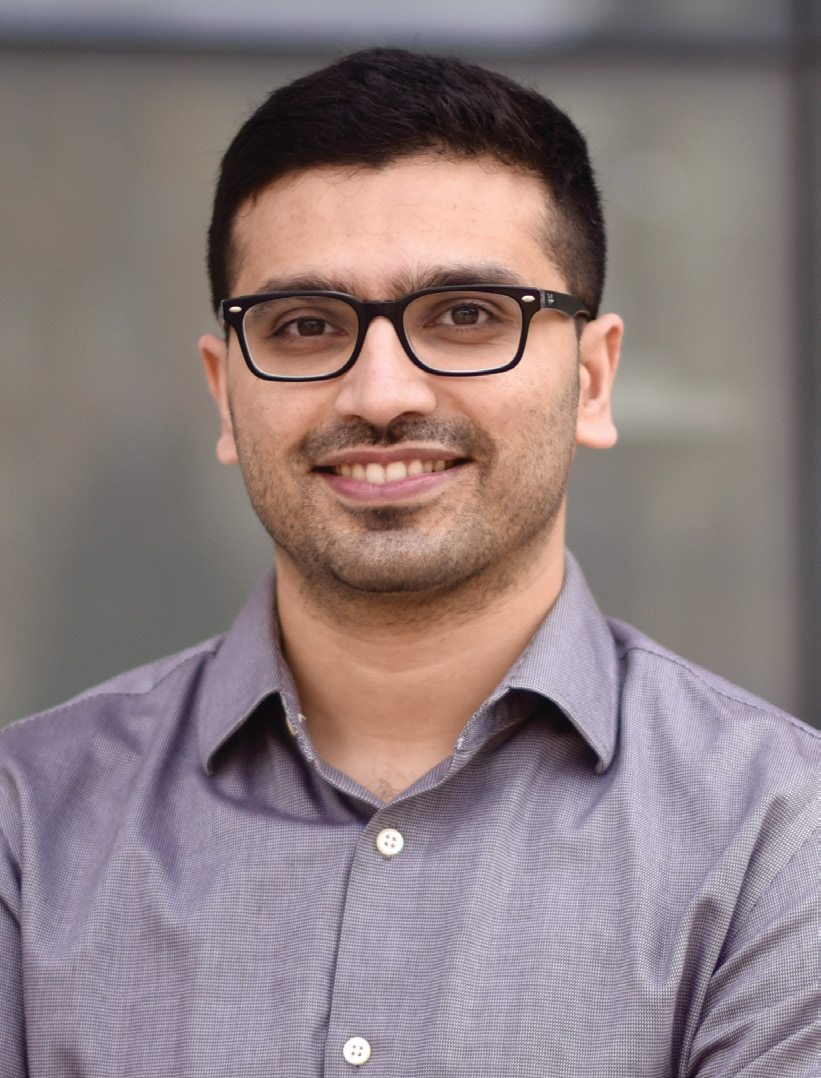Fall 2023 (Volume 33, Number 3)
Rising Star:
Dr. Sahil Koppikar
Download PDF

Thank you to the CRAJ Editorial
Board and the editor-in-chief, Dr. Philip Baer, for
inviting me to write a piece for this
issue. As a medical student, I was
taught that mentorship was critical
in influencing and shaping careers
in medicine. How true this was!
As an early-career rheumatologist,
the path I have carved out is largely
due to the guidance and support
of my mentors (and lots of luck!).
While there have been many helping
hands, I’d like to highlight a
few; Drs. Averns and Joneja (for
planting the seed of rheumatology
when I was a student), Drs. Jerome,
Gakhal and Eder (for patiently
guiding me, fostering my clinical
interests, being my advocates,
and opening so many doors), and
Dr. Rubin (for demonstrating a
commitment to a cause and trusting
me to take over three decades
of your work).
I work at the University of Toronto (U of T), as a clinician-teacher. While patient care remains the crux of the job,
much of my work has been built around two main areas:
1) regional and remote models of care (MOC); and 2) point-of-care MSK ultrasound (MSKUS).
As a PGY-5, I had the opportunity to make several visits
to a longstanding Northern Ontario clinic in Timmins.
This allowed me to appreciate the inequities in care due to
location, resources, and cultural backgrounds. When I took
over the clinic as staff, we looked at ways of optimizing the
MOC which improved access and wait times for these patients.
We continue offering this as an elective rotation to
trainees. This work led to me becoming the Northern Ontario
Committee (NOC) chair at the Ontario Rheumatology
Association. Over the last few years, we have been advocating
to Ontario Health through a business case, for an evidence-
based MOC that leverages the use of extended-role
practitioners (ERPs), working with rheumatologists, in a
“hub-and-spoke” model to improve access and outcomes.
This year, we were successful in obtaining pilot funding
from the ministry to implement the model in Thunder Bay
and also for capacity building to train Advanced Clinical
Practitioners in Arthritis Care (ACPACs) from the north.
While it was a tremendous amount of work, it has been immensely
gratifying given the inequities I regularly see affecting
my northern patients and, hopefully, acts as a step
in narrowing that gap.
My other passion, ever since
observing its use with Dr. Averns
as a student, has been point-of-care
MSKUS. I personally think it
improves our diagnostic and therapeutic
capabilities, and I completed
a fellowship in MSKUS in
inflammatory arthritides. This
allowed me to offer this expertise
locally, to my own and colleagues’
patients. I am collaborating
with clinician-investigators, such
as Dr. Eder, on research involving
MSKUS, allowing us to better understand
its role in improving early
diagnosis. This led to me co-directing
the CRUS Basic Course, where
we are developing a pathway leading
to MSKUS certification, similar
to that offered to American and
European rheumatologists.
The work to date has provided
variety and allowed me to collaborate
with some fantastic colleagues
while helping me learn and grow. I
am grateful for the opportunities and to everyone who has
helped me along the way. Our field continues to evolve, and
I look forward to the future opportunities this brings to all
of us.
Sahil Koppikar, MD, FRCPC
Rheumatologist, Women's College Hospital
Assistant Professor, University of Toronto
Toronto, Ontario
|
